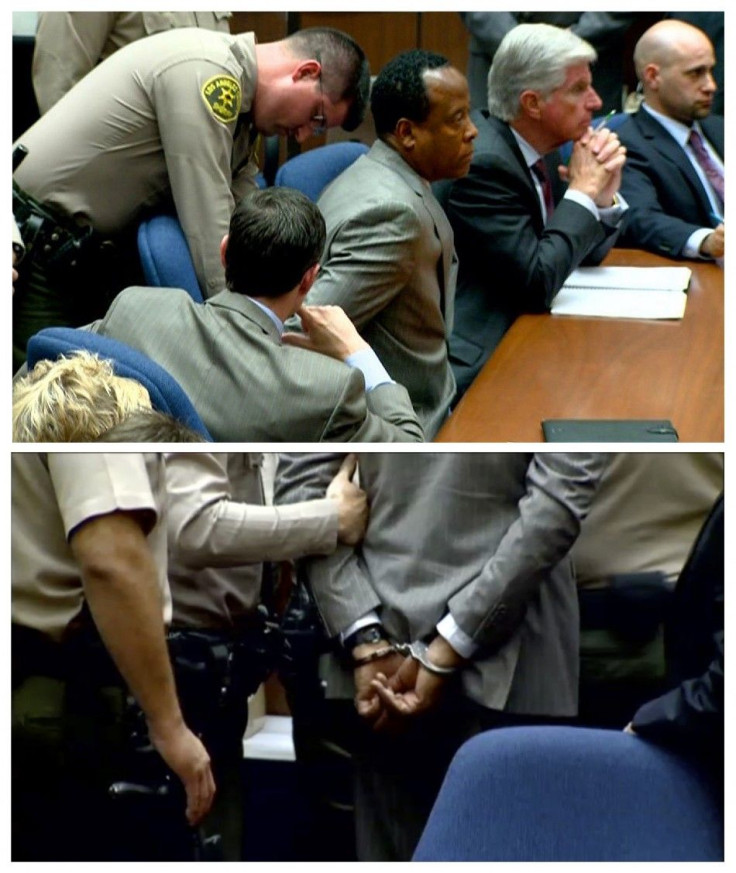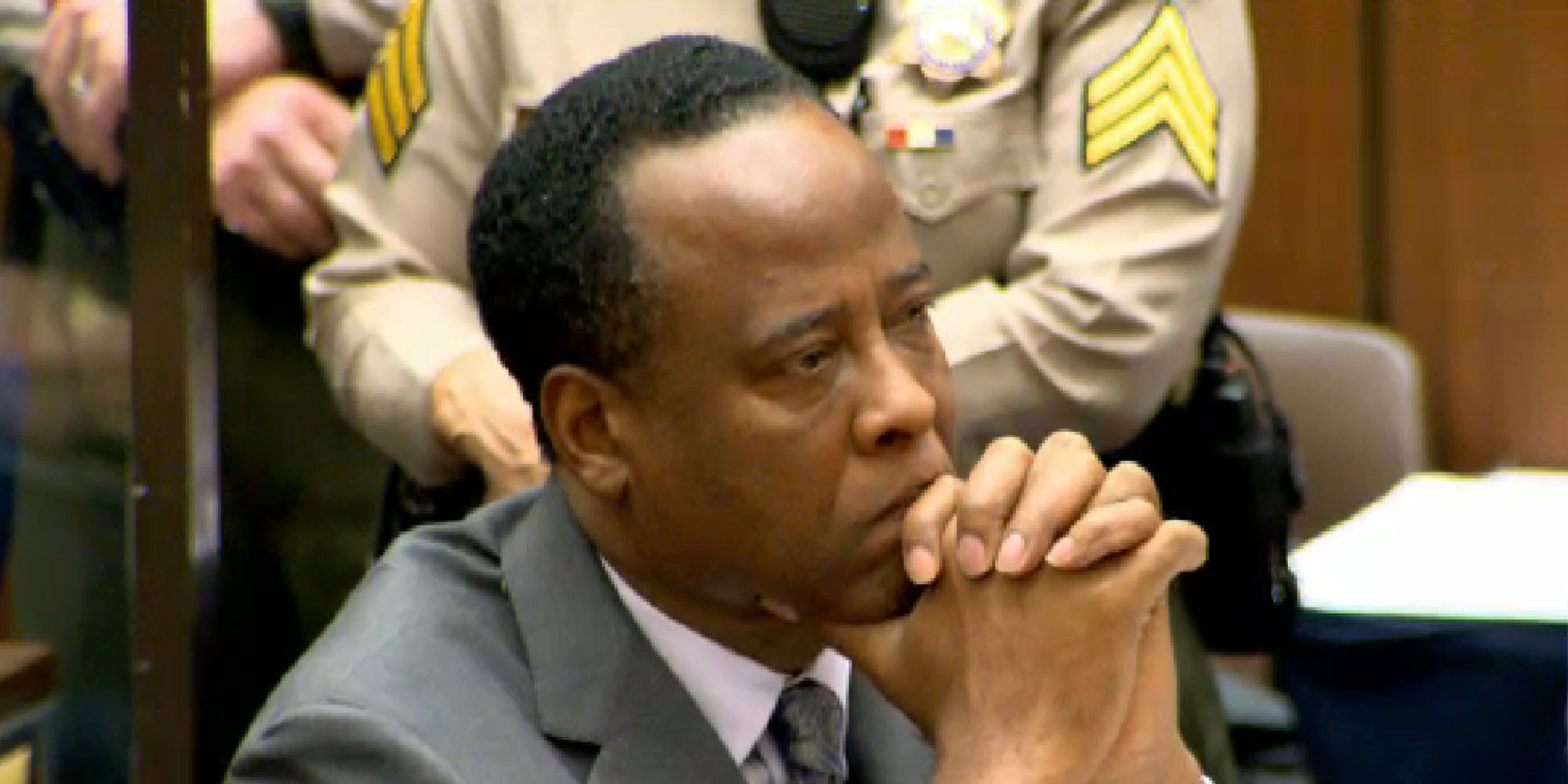Is it possible for a medical professional, convicted of involuntary manslaughter, to rebuild a career and reputation after such a devastating fall from grace? Conrad Murray, the former physician of Michael Jackson, not only served time for his role in the pop icon's death but has also attempted to resurrect his medical practice, a move that continues to spark controversy and debate.
The story of Conrad Murray is a complex tapestry woven with threads of celebrity, medical ethics, and the enduring legacy of a global superstar. His name became inextricably linked with Michael Jackson on June 25, 2009, the day the "King of Pop" died in Los Angeles, California, at the age of 50. Murray, Jackson's personal physician, was present at the singer's Holmby Hills home when Jackson was found unresponsive. He admitted to administering propofol to help Jackson sleep, a practice that would ultimately lead to his conviction.
The ensuing investigation and legal proceedings painted a grim picture. On November 29, 2011, Murray was sentenced to four years in a Los Angeles County jail for involuntary manslaughter. The court found that Murray's actions, specifically the improper administration of propofol, were a significant factor in Jackson's death. Superior Court Judge Michael Pastor condemned Murray, calling him a "disgrace to the medical profession" and accusing him of a "continual pattern of deceit." The judge's words underscored the gravity of the situation and the profound violation of trust that had occurred.
- Aj Mclean Age Biography And The Backstreet Boys Journey
- Bill Gates Daughter Husband Nationality And More Insights
Despite the sentence, Murray's legal battles didn't end with the conviction. He continued to appeal his case, attempting to challenge the verdict. However, he ultimately served approximately two years of his sentence before being released on parole in October 2013. The early release, a consequence of overcrowding in California's state prisons, generated further discussion about the justice system and the ramifications of Jackson's death.
Since his release, Murray has made various attempts to re-enter the medical field. He opened the DCM Medical Institute, a clinic, in May. The decision has been met with mixed reactions. Some view it as a blatant disregard for the severity of his past actions, while others argue that everyone deserves a chance at redemption. The medical community, in particular, has been divided on the matter, grappling with the ethical considerations of allowing a physician convicted of such a crime to practice medicine again.
The circumstances surrounding Michael Jackson's death were tragic and complex. Jackson, preparing for a comeback tour, sought Murray's help to combat insomnia. Propofol, a powerful anesthetic typically used in operating rooms, was administered by Murray to facilitate sleep. This use of propofol in a home setting, coupled with the alleged lack of proper monitoring, proved to be a fatal combination. Jackson's dependence on the drug and Murray's role in providing it ultimately led to the singer's demise.
- Exploring The Life And Career Of Jennifer Grant
- Exploring The Life And Career Of Robert De Niro A Hollywood Icon
After his release from prison, Murray maintained that Jackson was responsible for his own death. This statement further solidified the controversy surrounding his character and actions. The public's perception was further complicated by these pronouncements, which seemed to indicate a lack of remorse or acceptance of responsibility. His attempts to restart his medical career thus faced an uphill battle, compounded by the lingering shadow of the circumstances surrounding Jackson's death and the public's perception of his accountability.
The legal case revealed the specifics of Murray's actions. He had administered propofol to Jackson over two months to treat insomnia. The lack of adherence to standard medical procedures, especially the absence of appropriate monitoring, heightened the risk associated with the drug's use. This breach of professional duty was crucial to the prosecution's case, contributing to the involuntary manslaughter conviction.
The ramifications of Murray's actions extend far beyond his personal struggles. They raise profound questions about medical ethics, the responsibility of physicians in caring for high-profile patients, and the delicate balance between a patient's autonomy and a doctor's duty of care. The case served as a stark reminder of the potential consequences of medical negligence and the importance of upholding the highest standards of professional conduct.
Conrad Murray's story underscores the complexities of redemption, forgiveness, and the enduring impact of a single, fateful event. His attempt to rebuild his career raises difficult ethical questions and challenges the very notion of second chances in the face of serious professional misconduct. His journey offers a unique perspective into the dynamics of celebrity, medical ethics, and the lasting consequences of choices made in the crucible of public scrutiny.
| Category | Details |
|---|---|
| Full Name | Conrad Robert Murray |
| Date of Birth | February 1953 (Approximate) |
| Medical Specialization | Cardiovascular Disease |
| Former Employment | Personal Physician to Michael Jackson |
| Conviction | Involuntary Manslaughter (2011) |
| Sentence | Four years in Los Angeles County Jail |
| Time Served | Approximately two years (released on parole in October 2013) |
| Current Status | Practicing medicine; Opened DCM Medical Institute |
| Location | Las Vegas, Nevada (Currently) |
| Experience | 36 years (as of provided information) |
| Insurance Plans Accepted | 3 (As per information) |
| Key Events | Found Michael Jackson unresponsive (June 25, 2009), Convicted of involuntary manslaughter (2011), Released from prison (October 2013), Opened medical institute (May) |
| Controversies | Role in Michael Jackson's death, Ethical questions regarding his return to medical practice |
| Reference | Reuters Article |
The circumstances surrounding Michael Jackson's death and Conrad Murray's subsequent conviction brought into sharp focus several fundamental medical ethics principles. The most evident breach revolved around the standard of care that a physician owes to a patient. By administering propofol in a non-hospital setting and failing to properly monitor the patient, Murray fell drastically short of the expected level of care. This constitutes a breach of duty, a key element in the involuntary manslaughter charge.
In addition, the case raises concerns regarding informed consent. The use of propofol, a powerful anesthetic, requires that the patient fully understands its risks and benefits. While Jackson requested the drug, the ethical question lies in whether the consent was truly informed, given the potential severity of the side effects and the environment in which it was being administered. The details of this case highlight the importance of open communication and proper consent procedures in patient care.
Murray's actions also prompt consideration of the principle of non-maleficence, which means "do no harm." A physician is expected to avoid actions that could cause harm to the patient. By administering propofol in a manner that deviated from established medical practices, Murray directly put Jackson at risk. The outcome of his actions tragically demonstrated a failure to adhere to this core principle.
The case has further highlighted the responsibilities of physicians when dealing with high-profile patients. The pressure to cater to the desires of a celebrity, the temptation to bend the rules, and the potential for conflicts of interest can complicate ethical decision-making. This case served as a reminder of the importance of maintaining professional boundaries, adhering to medical protocols, and placing the patient's well-being above all else.
The impact on the medical profession as a whole can be observed through greater scrutiny of the practice and the setting of improved guidelines for the use of strong anesthetics outside a hospital setting. These protocols included a thorough review of the standards and a push for the need for vigilance. Hospitals and clinics now often have strict rules in place regarding the administration of these drugs and the types of patients who may receive them.
The public also holds its perceptions regarding physicians and their commitment to safety and ethical conduct. The case of Conrad Murray served as a dramatic reminder of the importance of accountability for medical professionals. The public has come to expect strict standards of care, a belief in the ethical behavior of physicians, and a strong focus on patient safety and well-being. The reverberations of this high-profile case continue to shape the public's views on medical practice and the need for more patient advocacy.
The implications of Murrays actions extend to the realm of celebrity culture. The Jackson case sheds light on the blurred boundaries that can exist between medical professionals and their famous patients. The pressures of celebrity life, the demands of a demanding schedule, and the potential for personal relationships to cloud professional judgment contribute to the complexities. Physicians are called on to resist undue influence, to preserve their integrity, and to protect the health of their celebrity patients.
In the wider context of the music industry, Murray's case provided a dark reminder of the pressures faced by the artists themselves. The physical strain of performances, relentless work habits, and the temptation of illicit substances can all impact well-being. The case highlights the need for greater support, the need for resources for artists, and the need for better medical protection to allow celebrities to live healthier lives.
The ethical dimensions of Murray's case are far-reaching, encompassing the concepts of trust, responsibility, and accountability. The conviction brought into sharp relief the devastating effects of broken trust between the patient and the physician and the implications of a lack of accountability for medical misconduct. The case triggered a critical reassessment of the ethical parameters of medical practice and the urgent need to protect patient safety and overall wellness.
The story of Conrad Murray will serve as a cautionary tale for many years to come. It provides an important framework for discussing the ethics of medical treatment, the importance of following professional standards, and the significant impacts of a medical professional's choices on their patient's life. The legacy of the case, a lasting testament to the complexity of fame, medicine, and redemption, serves as a constant reminder of how critical ethical behavior, professionalism, and patient safety are.
- James Roday Net Worth A Comprehensive Look At The Actors Wealth And Career
- Angelina Jolie Understanding Her Weight And Height


